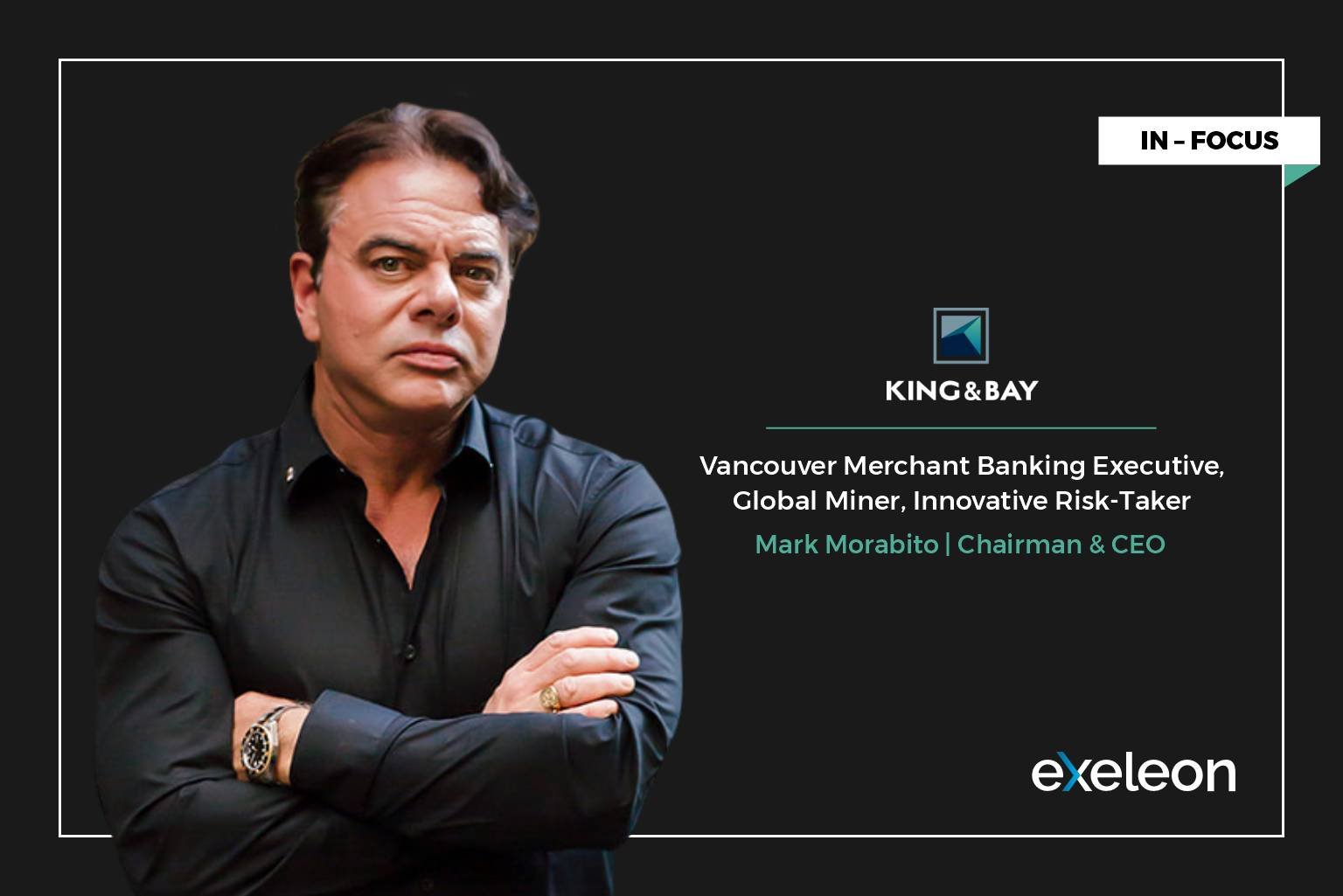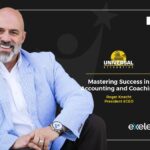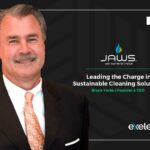
Mark Morabito is a successful Canadian entrepreneur, merchant banker and resource development executive who defies easy categorization. And that’s just the way he likes it.
Mark Morabito’s discoveries are helping to create a resource infrastructure for the emerging green economy. Based in cosmopolitan Vancouver, he coordinates mining exploration projects in rugged outposts like Tombstone, Arizona, Nevada and, most recently, in Idaho. A prudent investor, he is also known for his bold strategic approach to business that he summarizes as: “It’s not about the risk — it’s about the opportunity.”
Recently, we caught up with the kinetic Mark Morabito for a conversation across a range of intriguing topics, partially reprinted below.
Q: We were surprised to learn that you started your career as a lawyer. What prompted the change from law to entrepreneurship?
Mark Morabito: Studying the law is wonderful training for the mind, and practicing law gives you tremendous insight into how our society and economy work. You learn important skills, cultivate valuable networks, and gain insight into human nature. Later on, when you are creating your own companies, closing your own deals and initiating business ventures, you don’t need to be constantly consulting an attorney, because you already have that foundation, that essential understanding of our legal framework. And if you’ve practiced at the higher levels, you already know some of the key players in business and finance.
I prize the experiences I had working as a corporate finance securities lawyer, starting out in Toronto and later here in Vancouver. I remember well the 80-hour work weeks, basically eight years of that type of schedule. When you work so hard over such an extended period, you want to know you are working toward an important goal, whether it’s a career goal, a financial goal, a family-centered goal, a goal to help others and improve society, or a combination of all of these.
It’s not enough to know you are helping a law firm achieve records in billable hours and profits. Even if you become a partner, that’s just not enough, especially for a restless soul like mine. I decided my talents and ambition could be put to better use in the many exciting new ventures and opportunities I knew were out there. What my clients were doing excited me more than what I was doing to help them.
Q: Is there a transition that’s necessary from a law firm mindset to the thinking that’s necessary to achieve success in the business world?
Mark Morabito: Yes, definitely. When you are one of dozens or even hundreds of attorneys in a top firm, the number one virtue is collaboration. Winning in corporate law is mostly about doing extensive research, being able to distinguish the important issues from the unimportant ones and understanding how to negotiate. Most importantly, it’s being able to get the deal done for the client in a timely manner and doing whatever it takes to make sure it gets done. Having said that, you don’t really get to provide inspiration to the team you are working with.
But the ability to inspire is key to success in business. As a founder, president or CEO, you are not managing a legal brief, you are motivating a team; and you need a team of talented, smart, energetic people, because you can’t do it all yourself. From my perspective, success in business is also about risk-taking, and that kind of thinking is often anathema in a button-down law firm. As a corporate finance and securities lawyer, you’re trained to always keep your eyes on risk to the client. You don’t have the freedom or right to take risks with a client’s file.
Q: Beyond inspiring a team, are their other skills you believe are necessary to lead a business to success?
Mark Morabito: There is a whole range of talents, philosophies and strategies that are common to business success. You can understand many of these variables by reading biographies of some of the great business leaders of the past century. Right off the bat, you’ll notice that risk-taking was a common trait in most of these titans of industry and science, as well as failure itself. You can’t take risks and avoid encountering failure. Failure is where the lessons are.
Almost every biography starts off the same way in the early chapters, and is populated with many of the same characters: There’s the young dreamer, who grows up to be Thomas Edison or Steve Jobs or Sergey Brin. Then there are the skeptics, the doubters, the people who are always raining on the dreamer’s parade of ideas. These doubters typically include the young entrepreneur’s family. They believe he’s not serious about life, even borderline crazy. And the only reason that anyone cares to read a biography about this entrepreneur many decades later is the fact that he ignored all this pessimism and followed a North Star of creativity, innovation and ambition.
The triumph of achievement over skepticism is the narrative of history itself. Because, if the doubters had prevailed, Einstein would have lived out his years as a customs functionary, and the Wright brothers would have just been bicycle salesmen in Ohio. Mick Jagger might have settled into a comfortable life as a professor at the London School of Economics. The world is a much more exciting place because of people who take risks and have confidence in their dreams. For me, I always cast my lot with the dreamers. Whether I’m prospecting for copper in the desert or planning for the day I’ll ride into space on the Virgin Galactic flight I’ve already booked, I’m always aiming for a goal and imagining a new adventure. I don’t listen to doubters. I don’t hear them at all.
Read More Interviews of Leaders and Entrepreneurs across the globe by Exeleon Magazine – Click Here.









